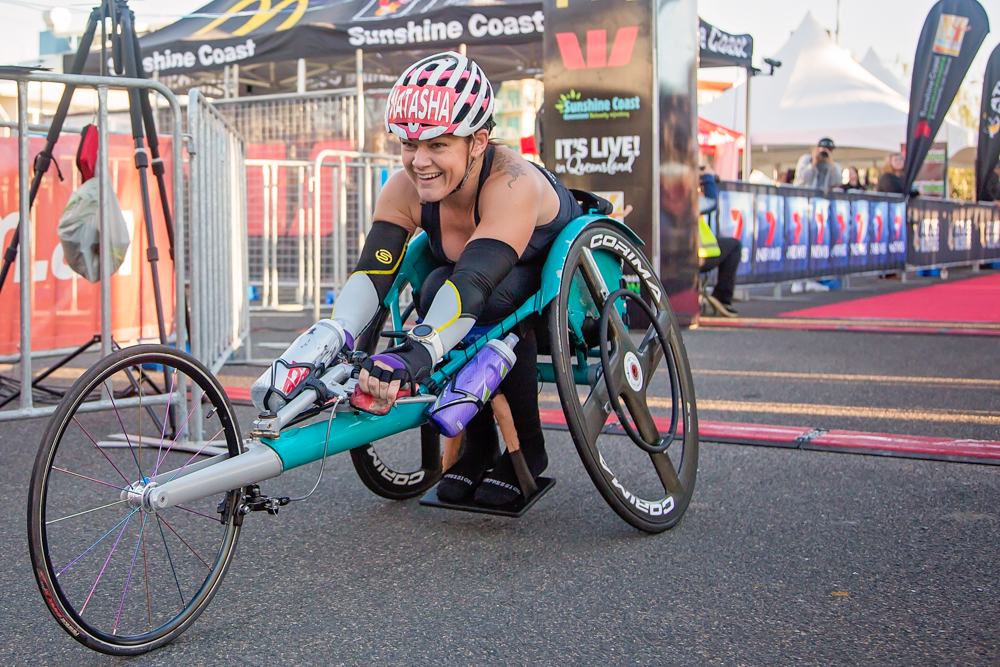NINE years ago Natasha Price was bed-bound at home in Hereford, coming to terms with the onset of a rare, crippling illness and desperate to join her family in Australia.
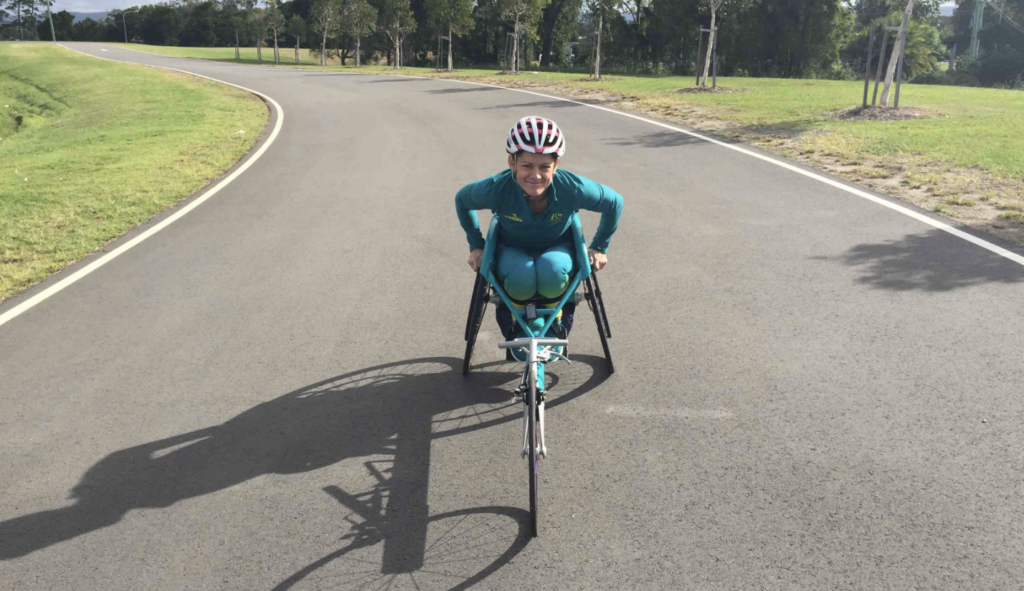
Fast forward to the present and Natasha, now 38, is back in Hereford, her parents’ Chris and Linda Price’s hometown. The cruel Devic’s disease continues to impact on her life, but Natasha is fighting back with a vengeance. She is also committed to getting a better deal for others with disabilities.
Though negotiating her wheelchair along Hereford’s pavements proved difficult, Natasha made daily visits to the gym for lengthy workouts. She remained focussed on completing a marathon, but first she had to raise funds to buy her racing wheelchair.
“I’d hoped to roll myself into town but because of all the bumps and potholes, it’s just not going to happen,” she said.
Natasha’s ability to triumph over adversity is inspirational.
In 2010, she came to Hereford from home in Queensland with her sister, Danielle, who was embarking on year-long studies at Hereford Sixth Form College. Natasha, a regular performance dancer at a Hereford nightclub, was planning to complete a Masters’ degree in travel and tourism management when the neurological symptoms of her condition neuromyelitis optica, or Devic’s condition, struck.
She awoke one morning blind and immobile. Devic’s condition, which causes paralysis and visual impairment, type 1 diabetes, fibromyalgia, rheumatoid arthritis and brucellosis, was eventually diagnosed.
Forced to remain in bed so far from home, Natasha’s plight was unbearable. She was reunited with her parents on the Gold Coast only after months of urgent fund-raising by relatives and friends.
“Having a positive attitude has got me to the point I’m at now,” said Natasha. “It’s not a bed of roses, but it’s so much better.”
During one relapse, Natasha was paralysed from the neck down for seven months and dealing with 60 bouts of vomiting each day. “Research has moved on in the last 10 years and is going great guns, and in the next 10 years there may be options to prevent such severe lapses.”
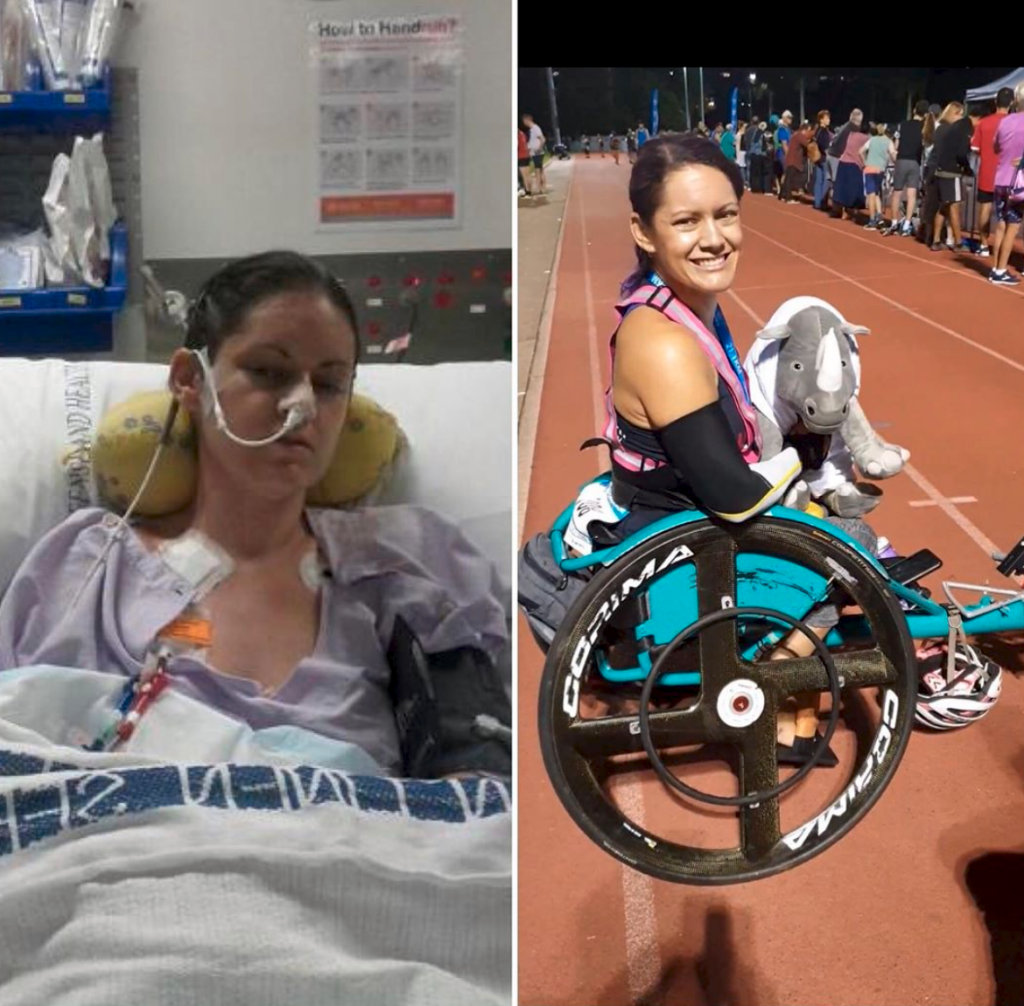
Every day Natasha spends at least two-and-a-half hours exercising at the gym or at the track. Each day she also has to spend eight hours ingesting a range of medications.
Natasha could easily be forgiven for feeling sorry for herself. Instead her inner strength and determination are propelling her forward to help others. In Australia, she has been working with a business partner to design sportswear for disabled men and women. She is also mentoring design students in Brisbane,
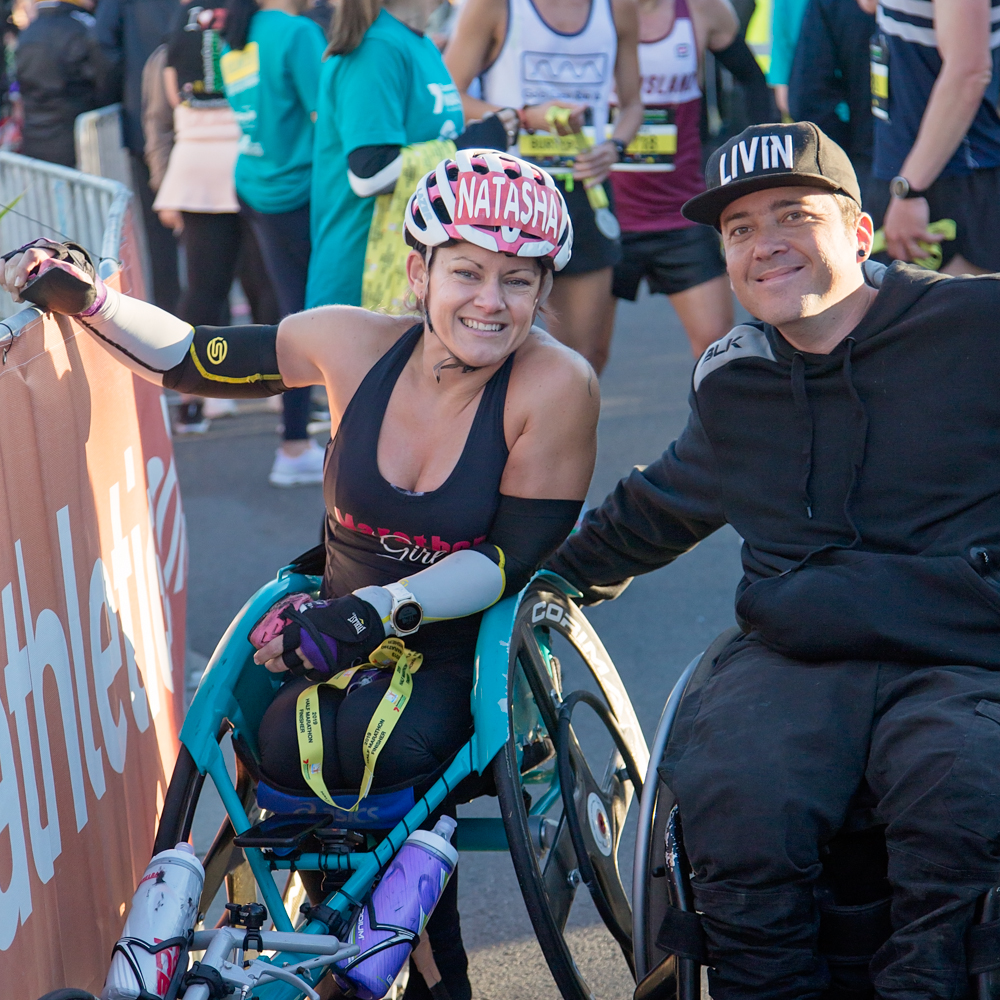
“I’m setting up my own business,” she explained. “I’m designing and producing active wear and accessories for those with disabilities and health conditions.” These include clothing that can be put on – and taken off – with relative ease, or designs accommodating medical tubes and devices.
“I’m working with a design college to develop a new line,” said Natasha.
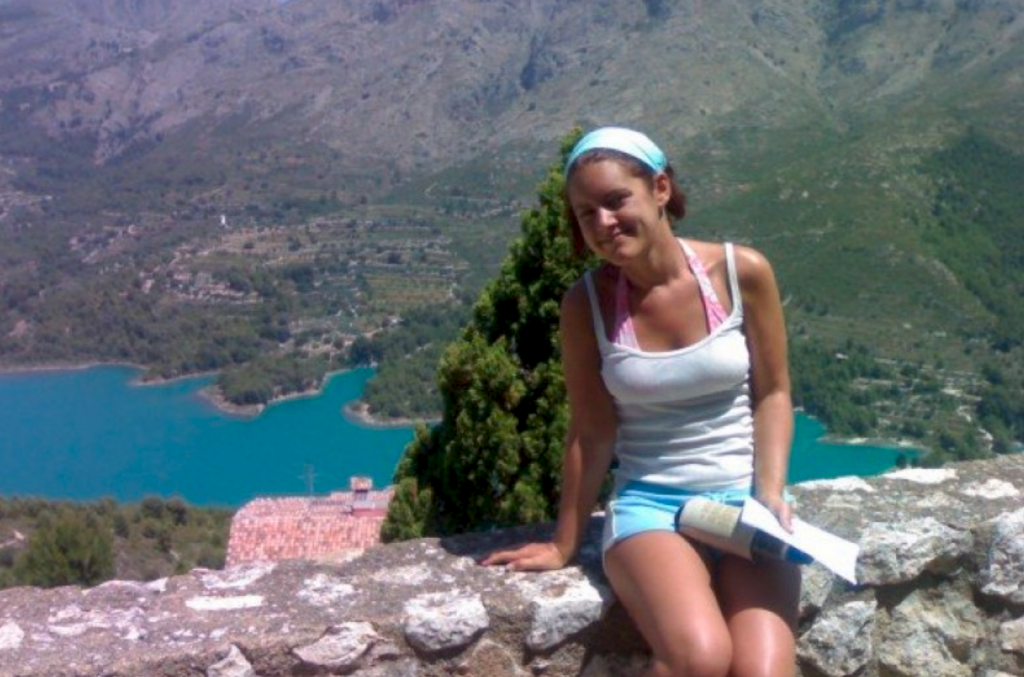
“I have always been positive, but now I’m really motivated and I want to put a different face on disability.”
*For more information about Natasha’s story and her “Para, Low Vision & Wanting to Race” fundraising go to www.GoFundMe.com/TashasJourney

